Who are the experts that take part in our courses?
Our external lecturers
In MicoLab we seek to offer our clients training that provide contents that are useful to them and can be really applied in their plantations. To achieve that, all our courses are designed by taking as reference information the needs we have identified in the sector. Then, we find the best professionals to teach each specific subject.
In this section you’ll be able to review information on the experts that share their knowledge in the classroom and in the field trips of MicoLab’s courses.
María Martín Santafé
PhD Researcher at the CITA of Aragon
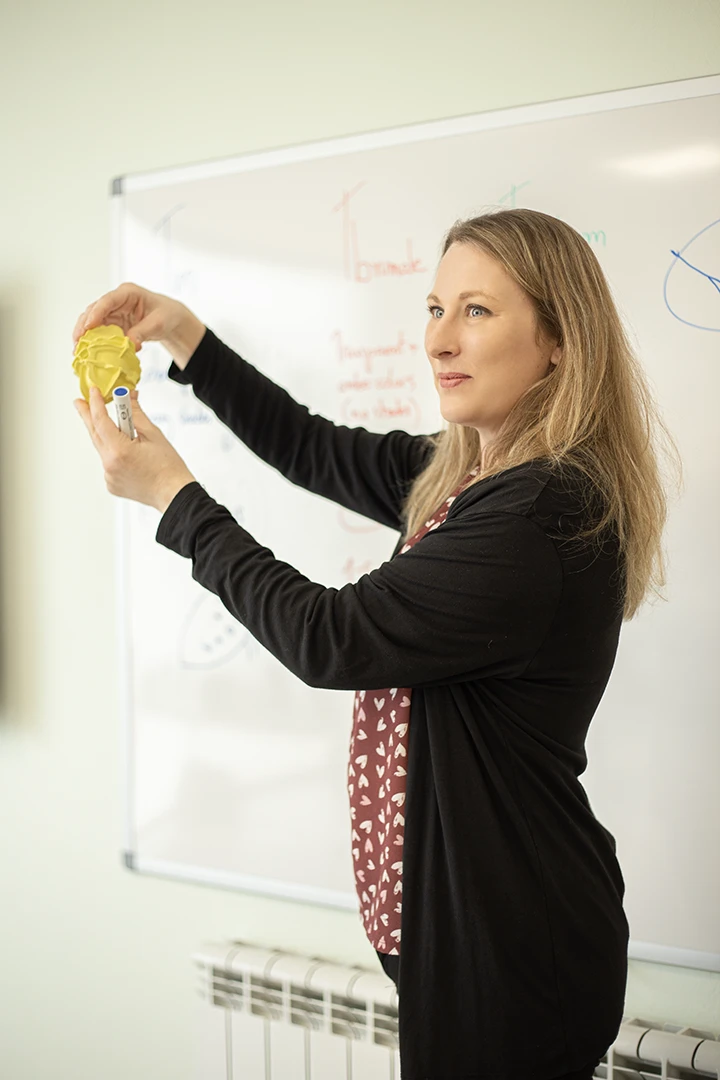 She holds a PhD in Forestry Engineering by the University of Zaragoza and is the owner of black truffle plantations.
She holds a PhD in Forestry Engineering by the University of Zaragoza and is the owner of black truffle plantations.
Since the beginning of her professional life, she has oriented her career towards truffles and truffle farming. Initially, she centered on the management and restoration of wild truffières through truffle forestry, and later she has aimed to the study of plantation management and sanitary problems related to truffle farming.
She is an expert in the study of phytopathological problems in truffle plantations, an area in which she developed her doctoral thesis.
Since 2009, she has been an employee at the Center for Agri-Food Technology and Research of the Government of Aragon (CITA). There she develops research works related to mycology, primarily on truffle cultivation, plant mycorrhization, plantation monitoring, site suitability for truffle cultivation, or morphological and molecular identification of competing mycorrhizae.
She is the author of several books related to truffle farming, and coordinator of one of them. She has participated in many educational and informative programs. Also, she is currently one of the leading promoters of truffle farming in Spain.
Finally, she has her own truffle plantations in which she takes care of the management and truffle harvesting.
For more information about her resume and published works, click here.
Doctoral thesis: Pests and diseases associated with truffle plantations
Major scientific publications:
- Edaphic and temporal patterns of Tuber melanosporumfruitbody traits and effect of localised peat-based amendment
- Phytosanitary problems detected in black truffle cultivation. A review
Published books:
Ricardo Forcadell Pérez
Manager at Qilex Forest Consultancy Services and CEO at Mytruff
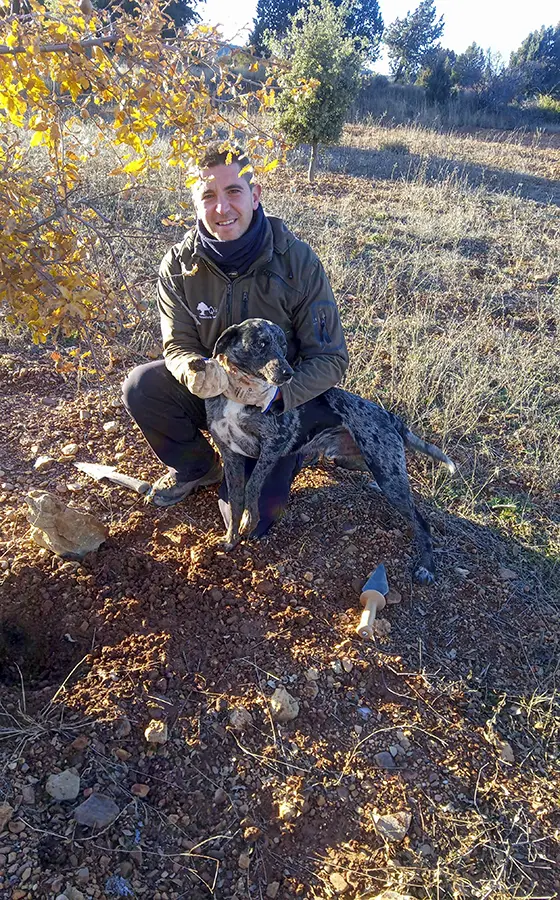 He is a Forest Engineer by the Polytechnic University of Valencia since 2008. He began his professional career in the research field in the areas of truffle farming and truffle forestry at the Mediterranean Center for Environmental Studies (CEAM).
He is a Forest Engineer by the Polytechnic University of Valencia since 2008. He began his professional career in the research field in the areas of truffle farming and truffle forestry at the Mediterranean Center for Environmental Studies (CEAM).
In 2013 he founded Qilex Soc. Coop. a forest consultancy company, based in Teruel. Qilex has a multidisciplinary technical team and develops its activity in the fields of forest management, truffle farming, environmental impact assessment and rural development projects.
From 2017 to the present, Ricardo has been involved in multiple projects for the implementation and management of business models related to truffle farming and forest mycology. The CulturFungi and Interfungi projects stand out from his works in the field of forest mycology. Interfungi is one of the projects coordinated by MicoAragón.
He is also co-founder of Mytruff, a company specialized in optimization and innovation in the management of truffle plantations and in marketing of gourmet truffles. The company also has its own plantations.
In the field of truffle farming, Mytruff’s research and technological innovation projects include the Watertruf project for irrigation water monitoring and management in truffle farming and the development of an artificial intelligence system for precision truffle farming, the TAIS, that stands forTruffle Artificial Intelligence System.
At Mytruff, truffles are collected by professional harvesters, cleaned, graded and carefully prepared, preserving all their aroma, for distribution at a national and international level.
Here you can check some of the scientific publications of the research and management studies in which he has participated:
- Black Truffle Harvesting in Spanish Forests: Trends, Current Policies and Practices, and Implications on its Sustainability
- Long-term soil alteration in historical charcoal hearths affects Tuber melanosporum mycorrhizal development and environmental conditions for fruiting
- Trufficulture and Forest Management in Teruel
Saturnino Gargallo
Manager at Saturnino Gargallo’s Nurseries
Saturnino is a truffle farmer and the owner and manager of Saturnino Gargallo’s Nurseries.
Saturnino began his career in the world of truffles 55 years ago as a wild truffle harvester. He is a man with great observation skills. He learned about the ecology and biology of the truffle fungus and the proper management to achieve good results by taking care of the wild truffières and harvesting wild truffles.
Approximately 30 years ago, he decided to design and set up the facilities for a truffle plant nursery in order to establish his own plantations. 28 years ago, with those plants made in his nursery, he established his first plantation, which is still in production today. After verifying the good results obtained with his plants, he decided to improve and build new facilities and start the commercial activity of the nursery.
Nowadays his nursery is known for the high quality of its plants. Saturnino devotes many hours and resources to the research, analysis and improvement of his plants and plantations. He is a reference in the sector as one of the oldest truffle farmers. His great communication skills and generosity when it comes to sharing his knowledge are admired and very appreciated. He dedicates time and effort to advising everyone who consults him on how to do the plantations correctly and how to manage them.
In addition, he collaborates with MicoLab in various research and plantation improvement studies.
For us it is an honor to be able to have him as expert to advise and train our clients.
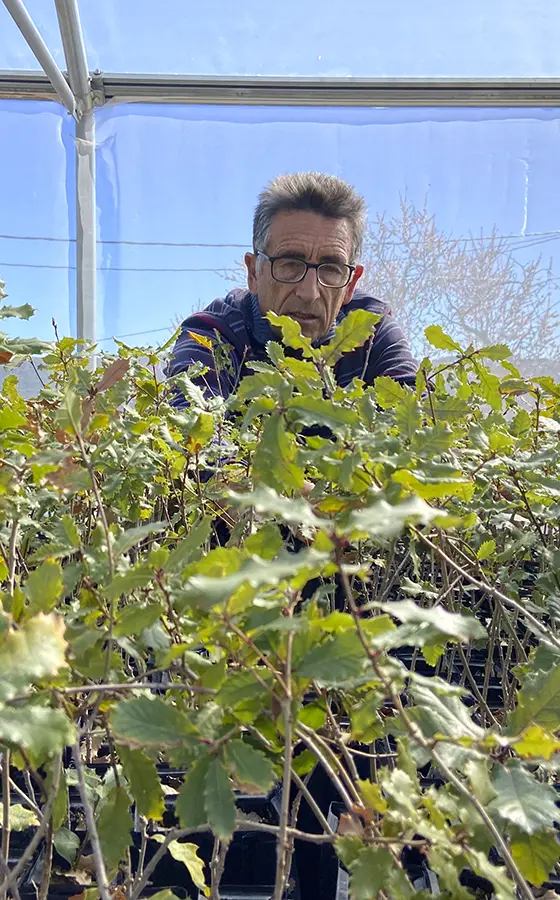
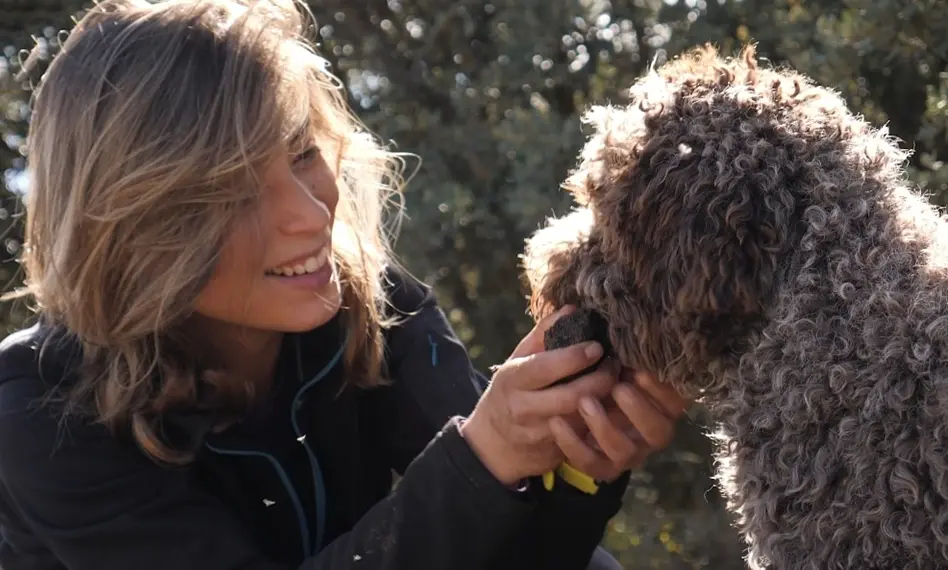
Alba Herranz
Manager at Alba Herranz Adiestramiento Canino
Alba is a professional dog trainer certified by the Spanish Cynological Federation. She is also a breeder of dogs with solid working bloodlines intended for truffle search. She develops her work through her business of dog training and specialized courses.
She has a experience of more than ten years working with dogs and she belongs to the third generation of dog breeders in her family. She has specialized in training dogs for truffle detection, and she is the manager of her own dog training school. Her family also has truffle orchards in which she trains and polishes the working skills of her dogs.
Alba’s work philosophy is based in the uniqueness of each animal so every training plan must be adapted to the individual dog. The link between the dog and its handler and the positive reinforcement are the basis of her methodology. Learning systems where the dog is subjected are discarded, thus ensuring the well-being of the animal.
César Vaquero
Manager of Globaltek Engineering and Irrigation Systems, SLU
Agricultural Engineer, specialized in the Horticulture and Gardening branch, by the Superior Polytechnic University of Orihuela (Alicante, Spain). He has an Official Master’s Degree in Wastewater Treatment Process Engineering.
From 2003 to 2010 he worked at the company CODES, Hydraulic Works and Applications, SA. Initially, he worked as a technician in the design of irrigation and drinking water facilities, and as a sales technician. In a few years, he became a project manager, where he began to execute and manage public and private hydraulic works, hydraulic stakeouts, performance controls, and develop collaborative tasks with site managers and clients.
In June 2010 he founded his own company, of which he is the manager since then: Globaltek Engineering and Irrigation Systems. There he works as technical director and prepares the annual operating plan for the company. He manages the projects directly and designs and studies the hydraulic irrigation and gardening works developed by his company.
Nowadays, due to his passion for hydraulics and the environment, his vision includes renewable energy studies mainly focused on irrigation systems and solar pumping. He applies this knowledge to all types of plantations in Spain.
Globaltek is probably the most prestigious irrigation company in the truffle sector. This is not only due to the quality and efficiency of its designs, but also because of their extensive knowledge of truffle farming techniques that allows them to advise customers effectively.
In the projects section of their website you can check irrigation installations for truffle farming and many other works carried out by his company.
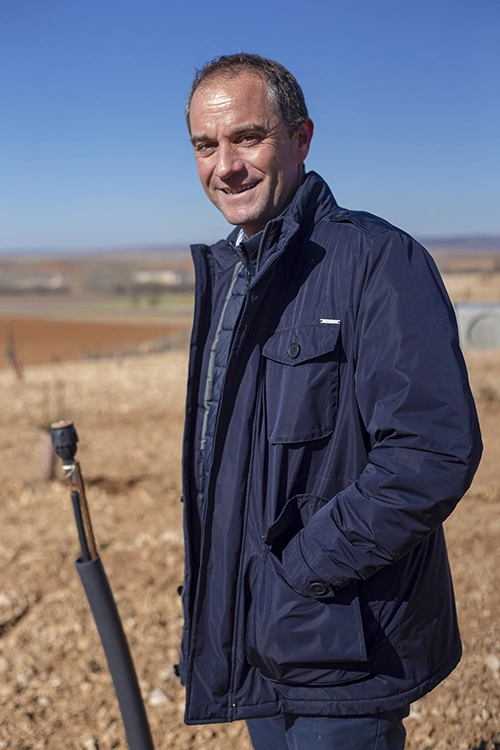
Miguel Ángel Zugasti Calvo
Miguel Ángel is more widely known in our sector as Chencho. His beginnings in the truffle world go back to 2007. That year he starting hunting wild truffles and established his first plantation which is still achieving high yields nowadays. Currently he owns and manages about 20 hectares and he also takes care of plantations from many of his clients. He is also a middleman for international truffle sales and founding partner of Todotruficultura, a company dedicated to on-line sales of truffle products and that is also a supplier of truffle farming services.
His truffle resume includes directing for seven years the only truffle museum that was present in Spain until 2024. Also, he created and run a truffled egg company, Valle de Yerri, with presence in supermarkets, restaurants and gourmet shops.
But what has made him one of the leading figures in the global truffle sector as an innovator and visionary is his role as founder of the company Todotruficultura. We have to thank Todotruficultura for the creation and continuous improvement of specific machinery. The Nido-line, Nido-Line mini and the trencher for vertical Spanish wells are their main creations. The three of them can be attached to a small tractor, which represents an exponential leap in the mechanization of the truffle cultivation. Finally, we must highlight another tool, the decompactor for brûlées, that can be attached to an excavator. All of them can be seen in the products section of their website and in the mechanization section of MicoLab’s YouTube channel.
Chencho is also very generous in sharing information and very active on social networks. He is a treasure for our sector.
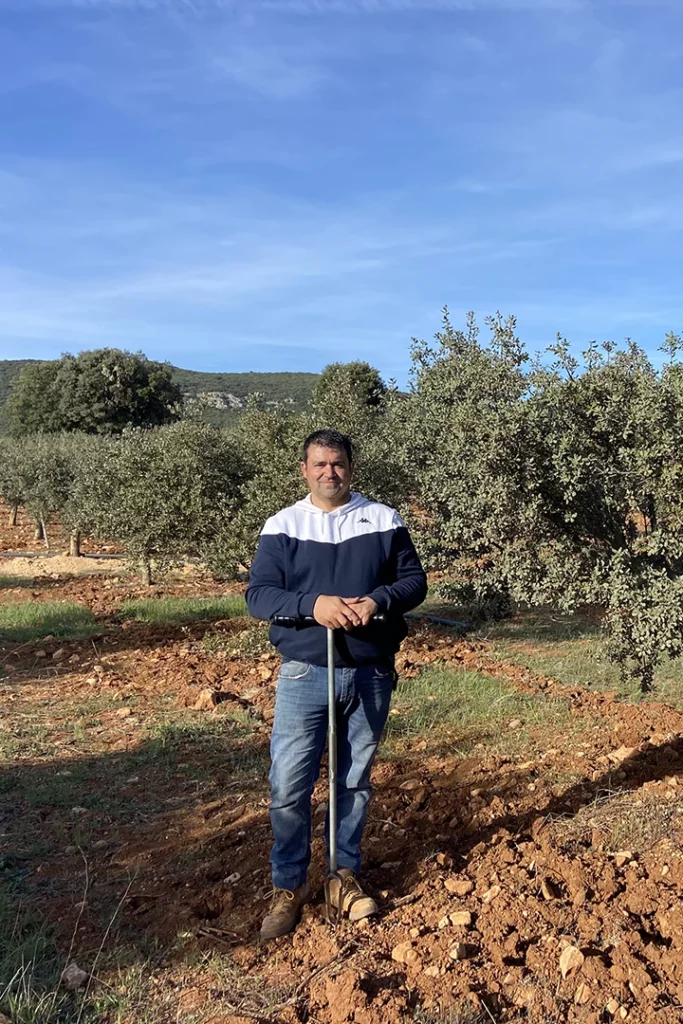
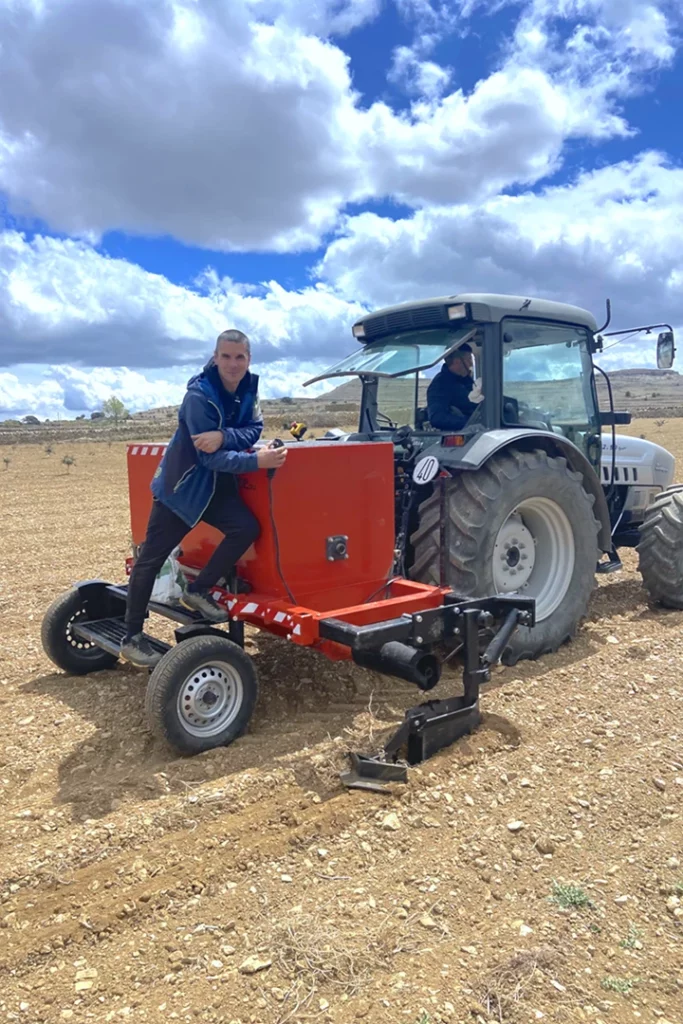
Cristobal Burguete Calle
Cristóbal works exclusively in truffle farming and the design of specific machinery for our sector.
He made his first plantation in 2009 and since then he has been planting new plots. He currently has 14 hectares of which 10 are producing truffles.
He is one of the few specialists worldwide in reductive pruning (also called dwarfing pruning). This is the pruning technique he uses in his plantations. He decided to apply it after observing in his first plantation that, in the fifth year, the plants that went first into production were the smallest ones. And so, putting into practice the techniques learned from François Houette, he began this type of pruning and became a reference in the sector and a source of information for truffle growers who want to use this system.
However, what makes him have a significant position and the gratitude of truffle growers around the world is his work as a partner in Todotruficultura where he is in charge of the engineering design and technical improvement of the exclusive machines they sell. The Nido-Line, the company’s iconic tool, was a consequence of the suffering he went through in his first plantation by making Spanish wells with an auger. That plot had a stony soil with a certain tendency to compaction. After this, he began to engage in conversations with Chencho that led to this machine, the first of a series of machines specifically designed to improve truffle production by adding substrates, decompacting the brûlées and applying amendments.
He has a wide knowledge of mechanics, hydraulics and tractors, which combines with a fine instinct to detect problems and find solutions and improvements. The synergy with Chencho has as a result that each year the sector welcomes with enthusiasm and deep gratitude a new creation or improvement of the specific that it needs.
Cirilo Hernández Herranz
Truffle farmer and owner of a truffle machinery services company.
Cirilo belongs to the third generation of a family of wild truffle hunters and truffle growers. His grandfather was already looking for black truffles in the mountains of Guadalajara more than forty years ago. Over time, he also started hunting for summer truffles.
More than 30 years ago his father established his first plantation with truffle plants inoculated with Tuber melanosporum. At that time not much was known and some of his plantations did not work well but they learned from those mistakes and became the great professionals they are today.
To date, he has been working his own black truffle plantations plus a small summer truffle plot for 14 years.
With his daily work he realized the need to use specific machinery and began to research, test and buy different tools for his own use. Once he mastered and improved the way each tool had to be used in truffle plantations, he started to provide machinery services. Among the machines that he has been using for years and in which he is specialized we can highlight the Nido-Line, a trencher that is attached to an excavator to do Spanish wells, a narrow subsoiler with a track tractor and a lateral tool consisting of a narrow vertical miller with a sensor.
Last but not least, Cirilo is a professional truffle taster. He also used to be a member of the first and only truffle tasting panel that exists worldwide. Nowadays this panel is made up of a group of 33 experts specifically trained to be able to define organoleptic criteria for truffle quality parameters and assess the quality of fresh truffles and truffled products.
Cirilo is a great professional with years of experience who is a reference in matters of use and improvement of machinery for truffle plantations.
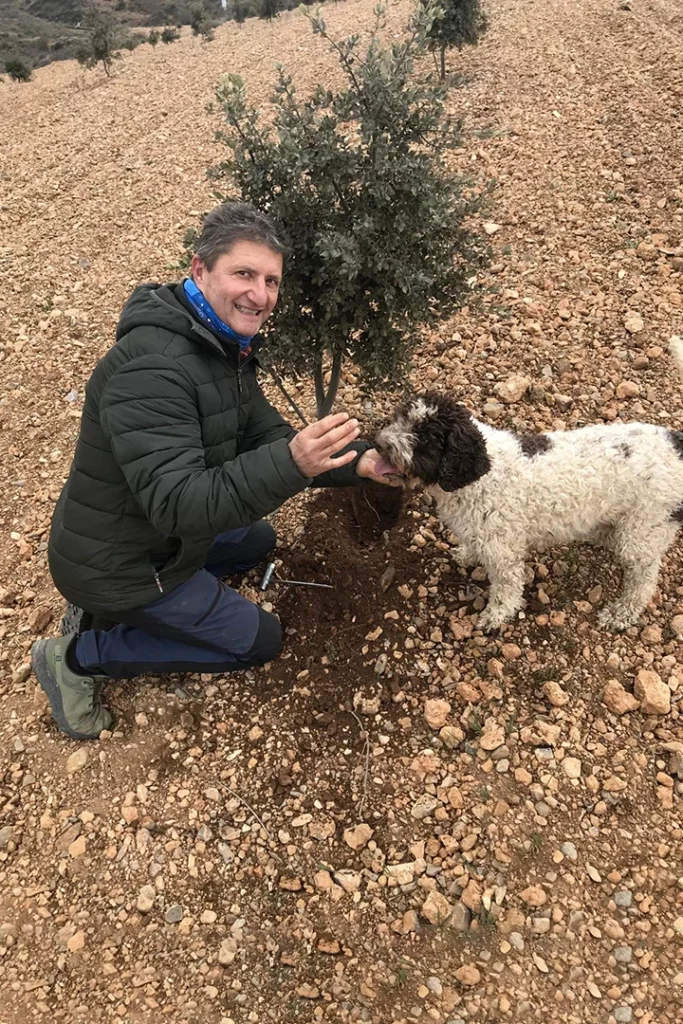
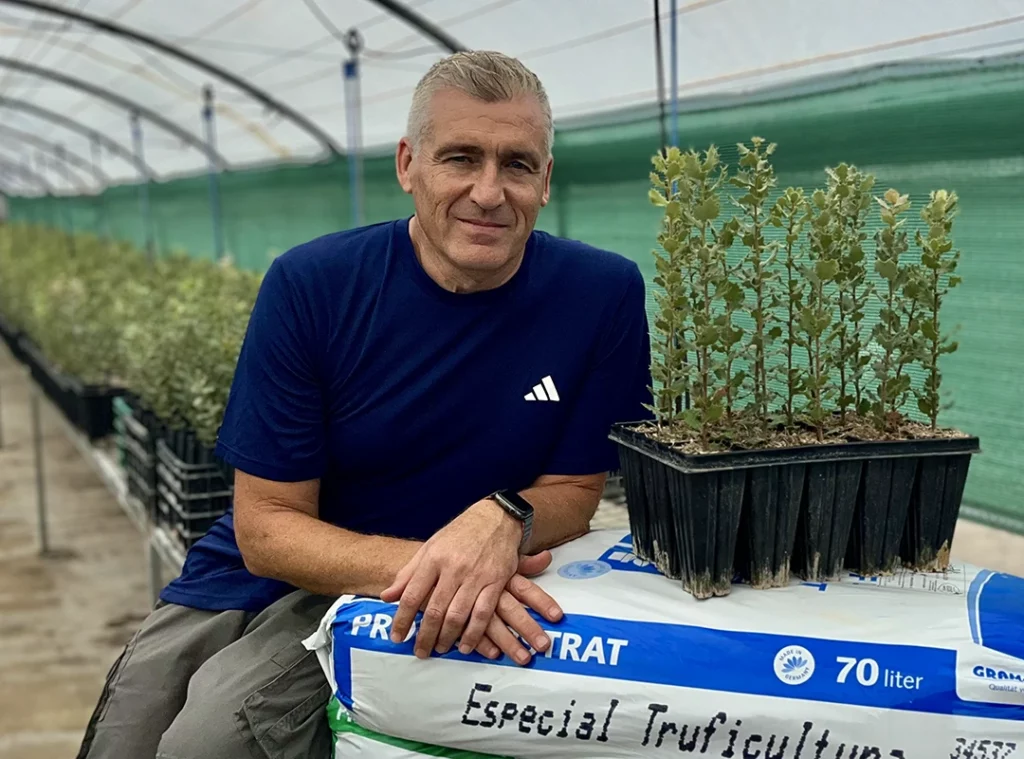
Luis Carbó Mañes
Luis is a professional truffle grower, manager and owner of Viver Truficultura nursery and designer of substrates for spore inputs in truffle plantations.
Luis belongs to the second generation of a family of truffle nursery professionals and truffle growers. His father, José Luis Carbó Molina, was a pioneer and is still nowadays a reference for the sector. José Luis started in the sixties as a wild truffle hunter in the mountains of Castellón. Seeing the huge potential that truffle farming had, in the eighties he started one of the first truffle plant nurseries in Spain, called Viver Truficultura. He established his first plantations in the early nineties, with trees inoculated in his own nursery. His legacy has been collected in the book Memories of a truffle grower (in Spanish). This essential reading was edited by his son Luis who is also responsible for making it available for free download in the company’s web page.
Luis joined his father’s company in the nineties.
In the year 2000, together with the Gramoflor Ibérica team, they developed and began marketing the first professional substrate for truffle growing. With this substrate a revolution begins in the world of truffle growing. Its effectiveness in various types of soil and irrigation frequencies makes spore nests (Spanish wells) become a common technique for many growers and production increases exponentially. To this day it continues to be the most widely substrate used in Spain. It is the one with the greatest prestige and a reference in the sector. It has distribution in other European countries, with France, Italy, Portugal and Germany being the main importers today.
Luis continues his father’s legacy by seeking efficient solutions for the sector, including the development of machinery to increase the efficiency of making Spanish wells with substrate. After years of improvement on his own, today he also collaborates with the Todotruficultura team.
Finally, we must highlight his work on innovation and practical research in soil decontamination prior to planting, more efficient pruning systems and yield improvement by seeking efficiency in the use of substrate, inoculum and irrigation frequency and dose.
The Carbó family continues to contribute with great advances for the truffle growing sector. Luis’s ability to explain complex topics in a very clear, practical and simple way also makes him a great communicator. This completes his research work with the dissemination of information which is key for the evolution of our sector.
Luz Cocina Romero
Agricultural Engineer by the Polytechnic University of Valencia (Spain) and former forestry teacher with a fourteen year career in the education sector.
She has more than twenty years experience in the agricultural and forestry sectors. She started her learning in the truffle growing world by doing internships and research contributions with the main truffle cultivation research centers in Spain. Prior to funding MicoLab, she did several trainings and internships with researchers from the most important Spanish centers that had truffle research departments. These centers include the Agri-Food Technology and Research Centre of the Government of Aragon (CITA), the Mediterranean Center for Environmental Studies (CEAM) and the Forest Science and Technology Centre of Catalonia (CTFC). With those researchers she improved her knowledge on microscopy concepts related to truffle and mycorrhiza identification, quality control of mycorrhizal plants, truffle plant production in nurseries and establishment and management of truffle plantations.
Nowadays, she coordinates and designs MicoLab’s research projects, which include collaborations with public research centers, truffle farmers and companies from the private sector. The knowledge acquired through the research studies combined with her lab and field works allows her to advise and design the best strategies for MicoLab to provide a professional and innovative service in the management of plantations, nurseries and analyses associated with truffle groewing.
She also teaches courses on truffle-related topics ranging from microscopy and nursery plant production to management techniques. Some of the educational materials and research papers produced by her can be downloaded in the links section.
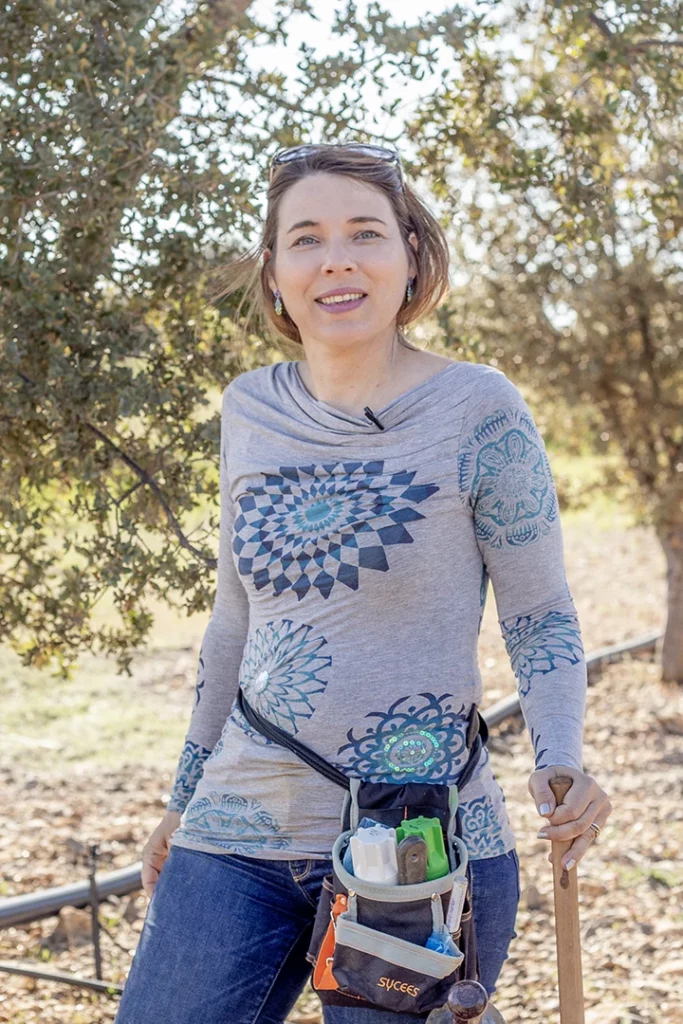
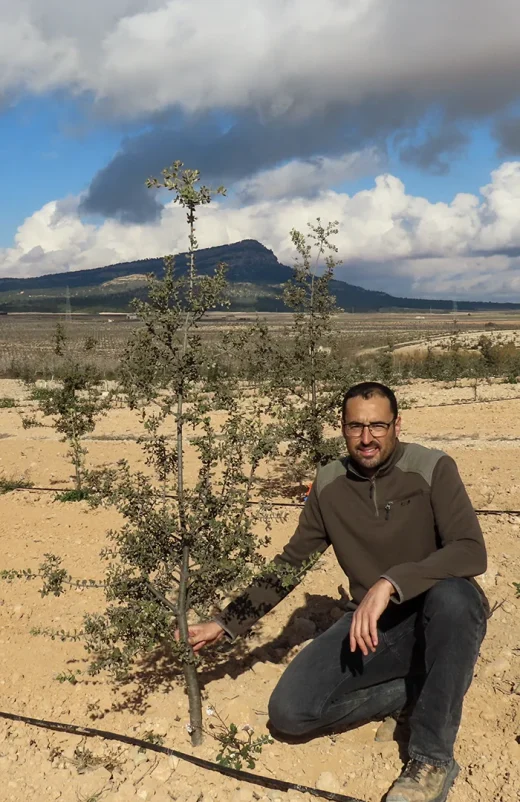
SERGIO MARTÍNEZ RUIZ
Bachelor’s Degree in Forestry Engineering from the University of Huelva, Spain. He has developed his professional career in several research centers, gaining extensive experience in fieldwork and specializing in data collection using advanced technologies.
Some of the institutions he has worked for include the Forest Science and Technology Centre of Catalonia (CTFC), where he conducted field work and laboratory activities. He also worked at the Institute of Agrifood Research and Technology (IRTA) and the Centre for Research in Agricultural Genomics (CRAG), where he developed his expertise as a greenhouse technician, managing all parameters to cultivate a wide variety of plant species under research studies. Additionally, he completed a two-year stay at the University of Québec in Montréal (UQAM), Canada, which allowed him to enhance his technical and international profile. One of the main tasks he carried out there was leading a team to inventory and georeference all the trees within a designated plot in a primary forest.
His expertise in the field of truffles began at the company Micología Forestal & Aplicada, where he trained as a specialist technician for two years. During this period, he visited dozens of truffle plantations and prepared numerous technical reports, consolidating his knowledge in the sector. For the past few years, he has held the position of Production Manager at a company dedicated to truffle cultivation, where he manages a team and coordinates all the necessary tasks for this type of crop.
The use of Geographic Information Systems (GIS) has been a key tool throughout his professional career, allowing him to apply this technology innovatively in modern truffle cultivation. His proficiency in this type of software has enabled him to understand and analyze field data, adapting the general criteria currently known in truffle cultivation to each specific case in order to improve the expected results.

